92% Ceramic Lined Coal Pipes
Discover our high-abrasion 92% ceramic lined coal steel pipes, designed for durability and performance in harsh environments.
When rubber lined steel piping isn’t lasting the distance, we often see maintenance teams try ceramic lined steel pipe as an alternative.
Download PDFThe ceramic tiles are 95% high alumina, and the bonding is high temperature epoxy adhesive up to 350oC. These kind of equipment with ceramic tiles lined in special structural shapes are suitable for the powder transport without tile falling off or aging working under 350oC for long time. The service life span is 4 to 5 times than normal steel equipment.
Their thought process makes sense. Ceramic tiles give better sliding abrasion compared to rubber, so you should get longer wear life.
But, in practice, it doesn’t usually give them the performance increase they were looking for. In this article we’ll look at why that happens and show practical examples of how mining engineers have solved the problem.
We have seen plenty of failed ceramic lined steel spools in our customer’s plants. They tell us that the most common problem is dislodged and debonded tiles.
The remaining tiles typically have plenty of wear life left, they just don’t always remain bonded to the pipe. Once they start dislodging in one spot, it’s only a matter of time before the whole spool fails.
They tell us that when the first tile lifts and peels away, the slurry erodes the remaining grout and works its way under the neighbouring tiles. This can then peel away whole sections of tiles, which exposes the bare steel, causing pipe failure.
Once a tile falls out, it leaves a hard edge. These ridges create turbulence, which can cause more problems downstream. Our customers also report that dislodged tiles can then get stuck in equipment like cyclones and pumps.
We received this photo from a site recently that clearly shows all of these issues. You can see that slurry has ripped entire sections of tiles away leaving the rest of the grout and steel pipe exposed.
In our experience, there are two main reasons why ceramic-lined steel fails like this:
Manufacturing ceramic-line steel spools is a labour intensive, manual process. As a result, our customers tell us that they find the quality of gluing and grouting varies significantly. The tiles in ceramic lined steel are glued in as individual tiles or strips. This can create ridges in the lining that chip or peel the tile and give the slurry openings to work its way under the tiles.
You can see that in this photo. One tile has already dislodged, and the grout around it is being eaten away. It is only a matter of time before more tiles go.
Ceramic tiles have excellent wear resistance but they’re poor at absorbing impact. Rigid steel pipe also has no give. So, when slurry hits the pipe walls, (such as when there’s a change in fluid direction, tight bends, or turbulence) over time you get hot spots that bear the brunt. Vibration around pumps can also cause problems with the rigid combination of ceramic tiles and steel piping.
These equipment with ceramic tiles lined in special structural shapes used for Pneumatic and Hydraulic Systems are suffering from high wear, high sliding and high impact, especially for the elbows. We can also design the custom pipe fittings and equipments to meet different working applications.
Equipment with ceramic tiles lined in special structural shapes is widely used in industries where high wear resistance, thermal stability, and corrosion resistance are essential. These specialized ceramic linings enhance equipment durability, reduce maintenance, and ensure smooth operation in harsh environments.
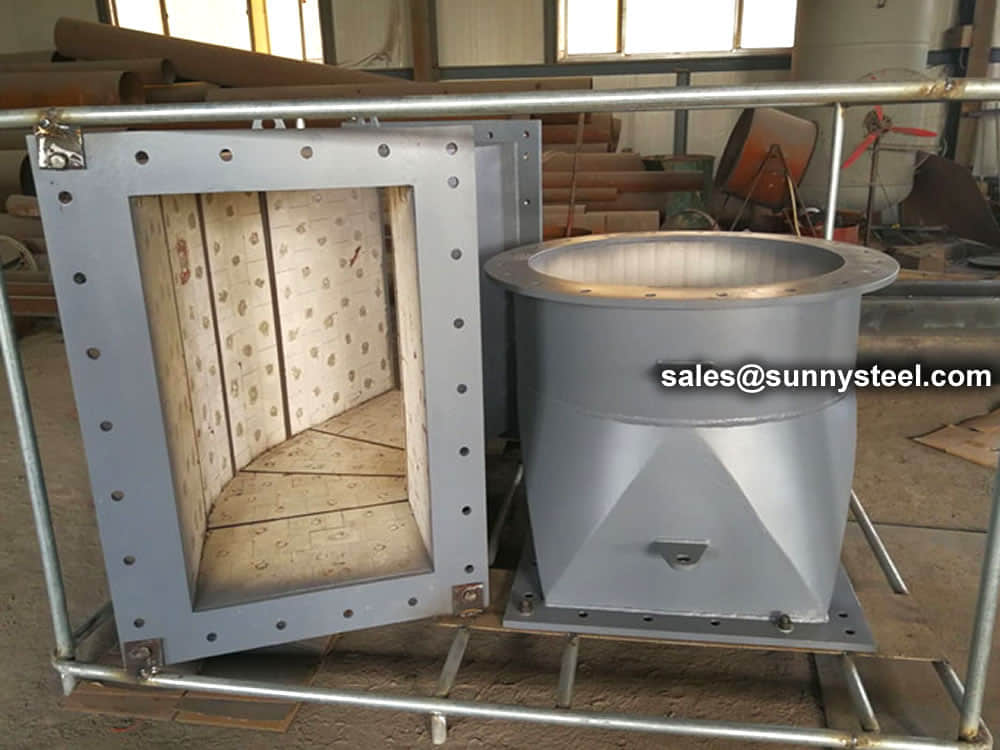
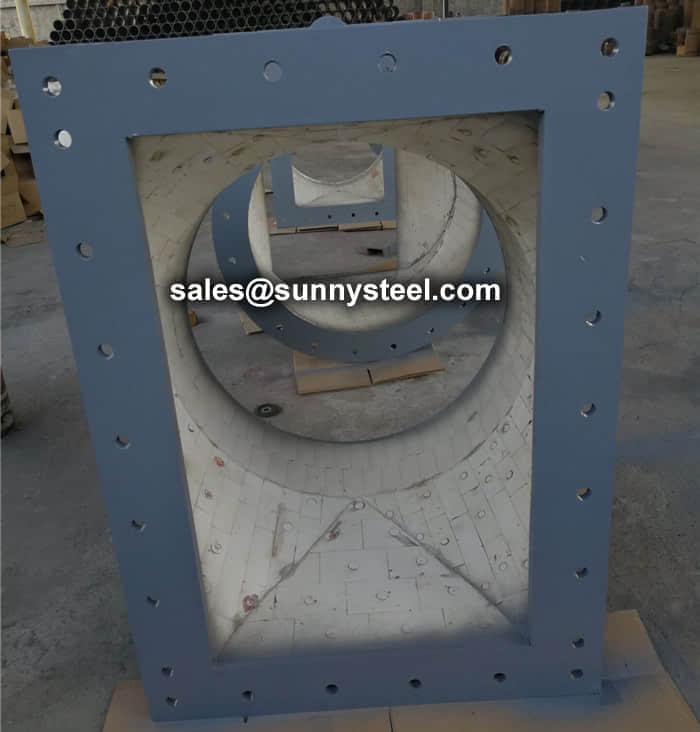
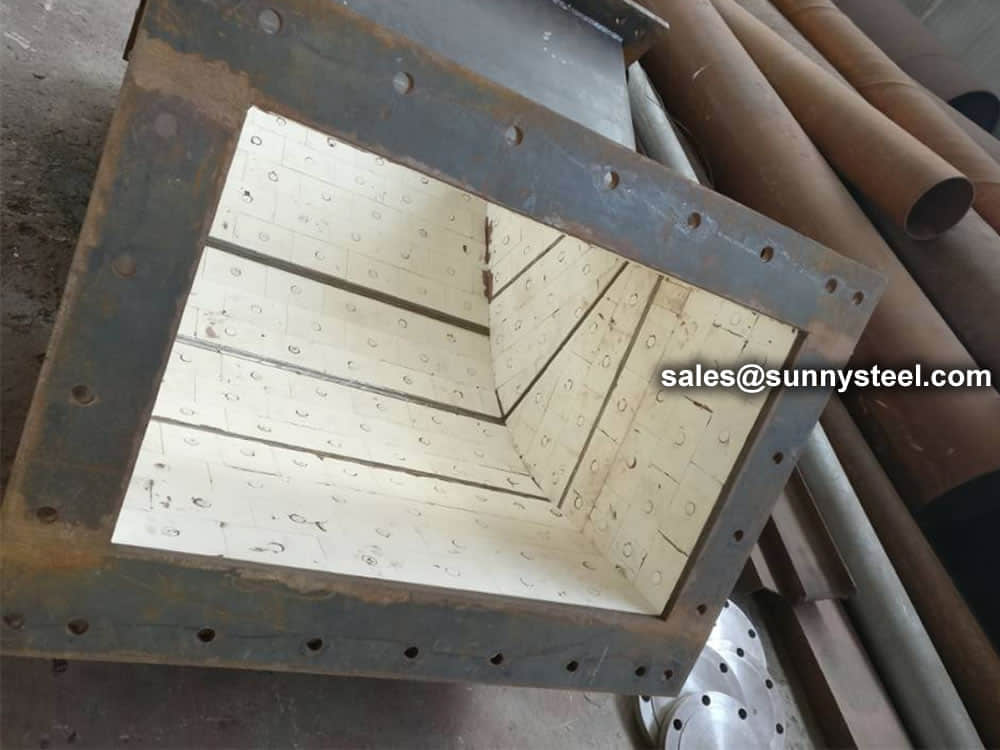
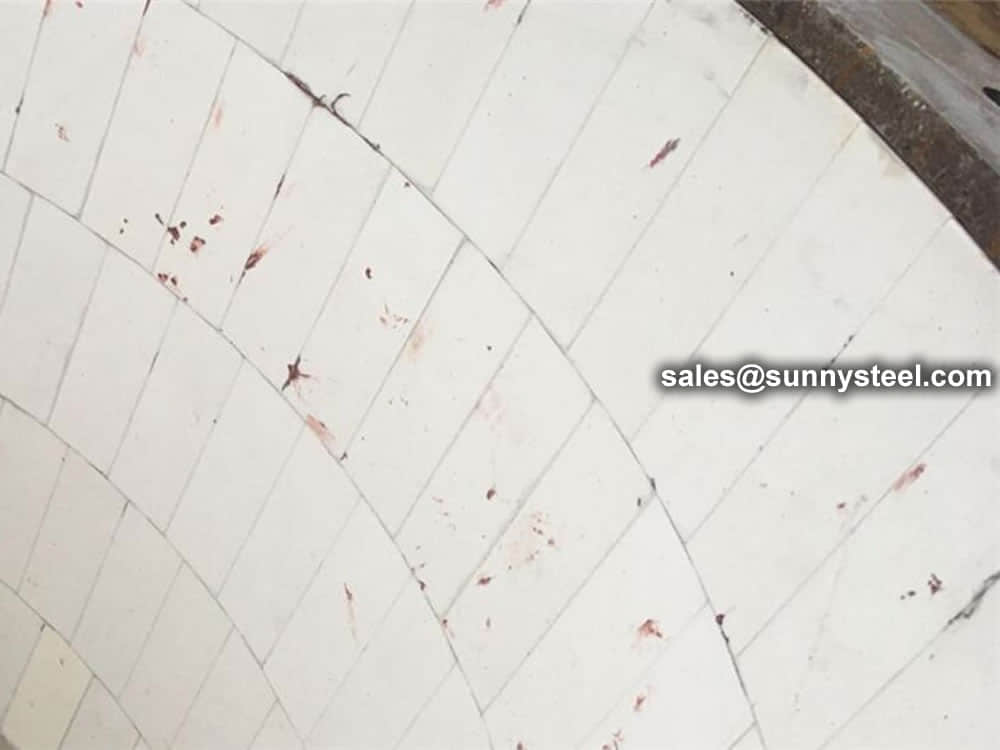
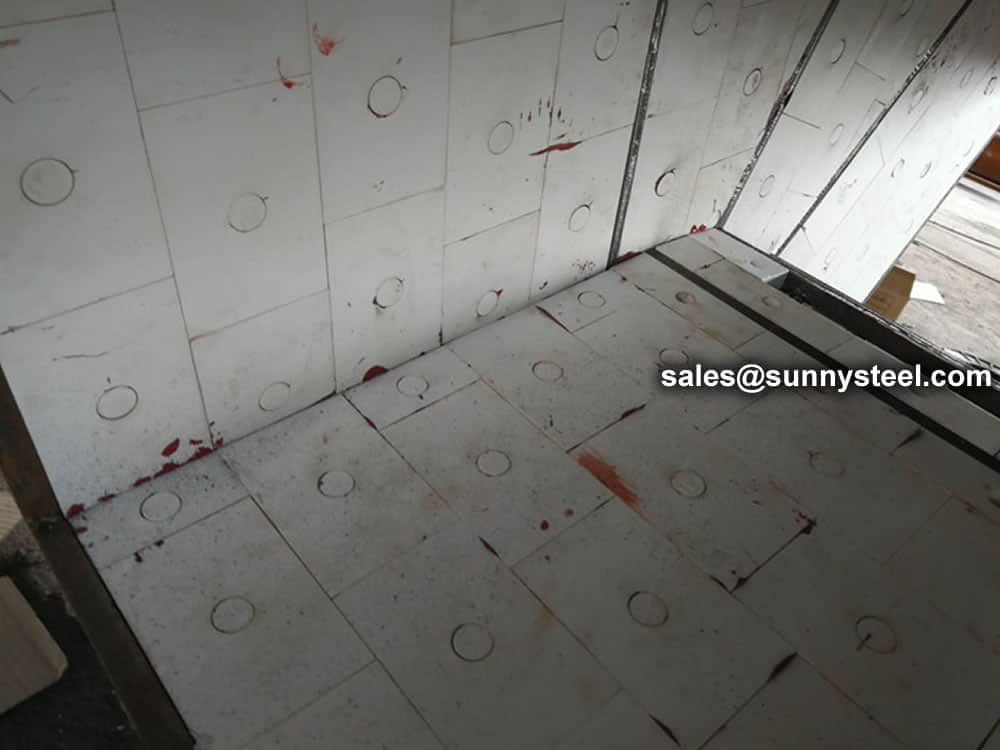
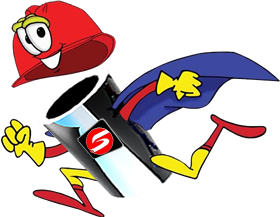
When you partner with Sunny Steel, you can stop worrying about meeting deadlines thanks to our responsive and timely service. You'll also say goodbye to unnecessary shopping around. Instead, you'll get white glove service from an expert who understands your needs and can get you the materials you need quickly.
